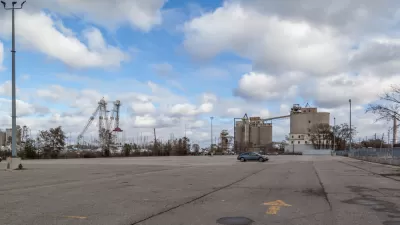The 'smart city' concept fails to take into account the necessary slowness of democracy and the unpredictability of a city's human inhabitants.

In an excerpt from her book A City is Not a Computer, author Shannon Mattern argues that the 'smart city' concept touted by Google's Sidewalk Labs and other technologists has not lived up to its promises, in part because the "move fast and break things" mentality typical of big tech runs up against the sometimes glacial pace of civic bureaucracy.
In an example from Toronto's Quayside project, the Sidewalk team "encountered, through the design process, the (often productive) slowness and friction of government bureaucracy and democratic deliberation." In the end, "[a]fter a long, messy process plagued by controversy over financing, governance, data privacy, and a host of other concerns, [CEO of Bloomberg LP Dan] Doctoroff took again to Sidewalk Talk in May 2020 to announce that the Quayside project was pulling the plug." According to local Sidewalk critic and public technology expert Bianca Wylie, "[w]hile the failure is certainly due in part to a changed world … this explanation brushes under the rug years of sustained public involvement in the project, from supporters and critics alike. From its inception, the project failed to appreciate the extent to which cities remain strongholds of democracy" and how the unpredictability of the human element makes it impossible to 'program' a city.
"[S]mart technologies often furnish convenient stopgap solutions; they provide a quick, and often lucrative, targeted fix that absolves leaders of the responsibility to investigate and resolve the root causes for health and racial injustices and systemic breakdowns." But while "Silicon Valley moves fast and breaks things," writes Mattern, "cities, if responsibly designed and administered, can’t afford such negligence—even if multiple converging crises seem to necessitate the rapid prototyping of urban solutions."
FULL STORY: Why high-profile smart cities fail, from Sidewalk’s Quayside to Amazon’s HQ2 in Queens

Alabama: Trump Terminates Settlements for Black Communities Harmed By Raw Sewage
Trump deemed the landmark civil rights agreement “illegal DEI and environmental justice policy.”

Planetizen Federal Action Tracker
A weekly monitor of how Trump’s orders and actions are impacting planners and planning in America.

How Atlanta Built 7,000 Housing Units in 3 Years
The city’s comprehensive, neighborhood-focused housing strategy focuses on identifying properties and land that can be repurposed for housing and encouraging development in underserved neighborhoods.

In Both Crashes and Crime, Public Transportation is Far Safer than Driving
Contrary to popular assumptions, public transportation has far lower crash and crime rates than automobile travel. For safer communities, improve and encourage transit travel.

Report: Zoning Reforms Should Complement Nashville’s Ambitious Transit Plan
Without reform, restrictive zoning codes will limit the impact of the city’s planned transit expansion and could exclude some of the residents who depend on transit the most.

Judge Orders Release of Frozen IRA, IIJA Funding
The decision is a victory for environmental groups who charged that freezing funds for critical infrastructure and disaster response programs caused “real and irreparable harm” to communities.
Urban Design for Planners 1: Software Tools
This six-course series explores essential urban design concepts using open source software and equips planners with the tools they need to participate fully in the urban design process.
Planning for Universal Design
Learn the tools for implementing Universal Design in planning regulations.
Jessamine County Fiscal Court
Caltrans
Institute for Housing and Urban Development Studies (IHS)
City of Grandview
Harvard GSD Executive Education
Toledo-Lucas County Plan Commissions
Salt Lake City
NYU Wagner Graduate School of Public Service




























